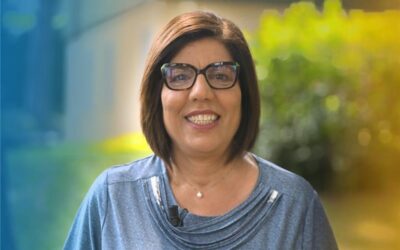Don Mario Bodega was a priest from northern Italy and spent thirty years in the diocese of Milan ministering as parish priest, spiritual director of a college and chaplain in the Niguarda Hospital. He also lived at the Focolare Centre in Grottaferrata, Rome, and for the last ten years of his life was parish priest of the parish church of Loppiano, one of the Focolare Movement’s “little towns.” Thinking about Don Mario Bodega makes you recall Beethoven’s “Ode to Joy” for a variety of different reasons. Firstly, joy really was a distinctive characteristic of his, secondly, this piece of music was one of his favourites and thirdly, he often played it on his harmonica. He had learned to play in the seminary and music had been important to him during many phases of his life. As a young hospital chaplain, at Christmas time, he used to go from room to room playing his harmonica. As soon as they heard his first notes, people in the hospital used to say, “Now it really is Christmas.” A prisoner in Bollate, near Milan, wrote, “When you played the ‘Ode to Joy’ for me, I realised that not everyone here comes to make judgements about me – some people just come to love. Thank you for helping me to find God again because I thought he had abandoned me.” Mario Delpini, Archbishop of Milan, also spoke of joy when he announced the news of his death, “Let us accompany this man of God, a priest and friend, to the joy of his meeting with God. A beautiful smile, indicative of deep, personal happiness has been his characteristic throughout life – during the days of his youth and in old age and sickness; when he had many pastoral commitments and during the time when lack of health meant that activity was greatly reduced.” Don Mario was born on 15 September 1942, during the Second World War, in Lecco, in northern Italy. After finishing primary school, he entered the seminary and, through the rector, he got to know the spirituality of the Focolare Movement. He was ordained priest in 1968 and carried out many different ministries during the thirty years he spent in the diocese of Milan. Then, when invited by Cardinal Archbishop Martini, he began to work with the Focolare Movement. During the eleven years he spent in Grottaferrata, Rome, he deepened his relationship with Chiara Lubich, the founder of the Movement. In the course of his life, he wrote 135 letters to her. In one of her answers, she indicated a Word of Scripture that he could particularly focus on living. It was, “Following his mercy, they have abandoned the vain and false realities.” (cf Jonah 2:9) “I Believe in Mercy” is the title of the book he produced. It contains many of his experiences. Bishop Meini of Fiesole gave a copy to all the priests of the diocese on Holy Thursday 2018. In 2009, Don Mario came to Loppiano as parish priest. There, in addition to creating a deeper communion among the inhabitants, he was a sure guide on the spiritual journey for many people. He played an important role in the “Paths of Light” programme for couples experiencing difficulties in their marriage. He also contributed to the development of the Sophia University Institute. The dean, Professor Piero Coda, wrote, “His house and the San Vito parish church in Loppiano are a stone’s throw from our Institute. They became our home and Don Mario’s presence and guidance have been a source of light and balm – a school of life. Our Institute also became his home. So much so that , among the most moving reactions to his death, were those those shared by our Muslim friends who are part of the ‘Wings of Unity’ project.” In 2018 he celebrated the 50th anniversary of his priestly ordination. Shortly before as Loppiano was preparing for Pope Francis’ visit, Don Mario said that, given his very poor health, he did not think it was appropriate to be introduced to the Holy Father. With great paternal love, the bishop convinced him to change his mind. Don Mario told Pope Francis that he was a parish priest who was sick and walked with difficulty. He said he felt he could no longer work. “If you can’t work standing up, work sitting down” was the Pope’s response. And that is exactly what he continued to do, with great tenacity and joy, for his remaining 365 days of life. In fact, he died exactly one year later, on 10 May 2019.
Anna Lisa Innocenti




0 Comments